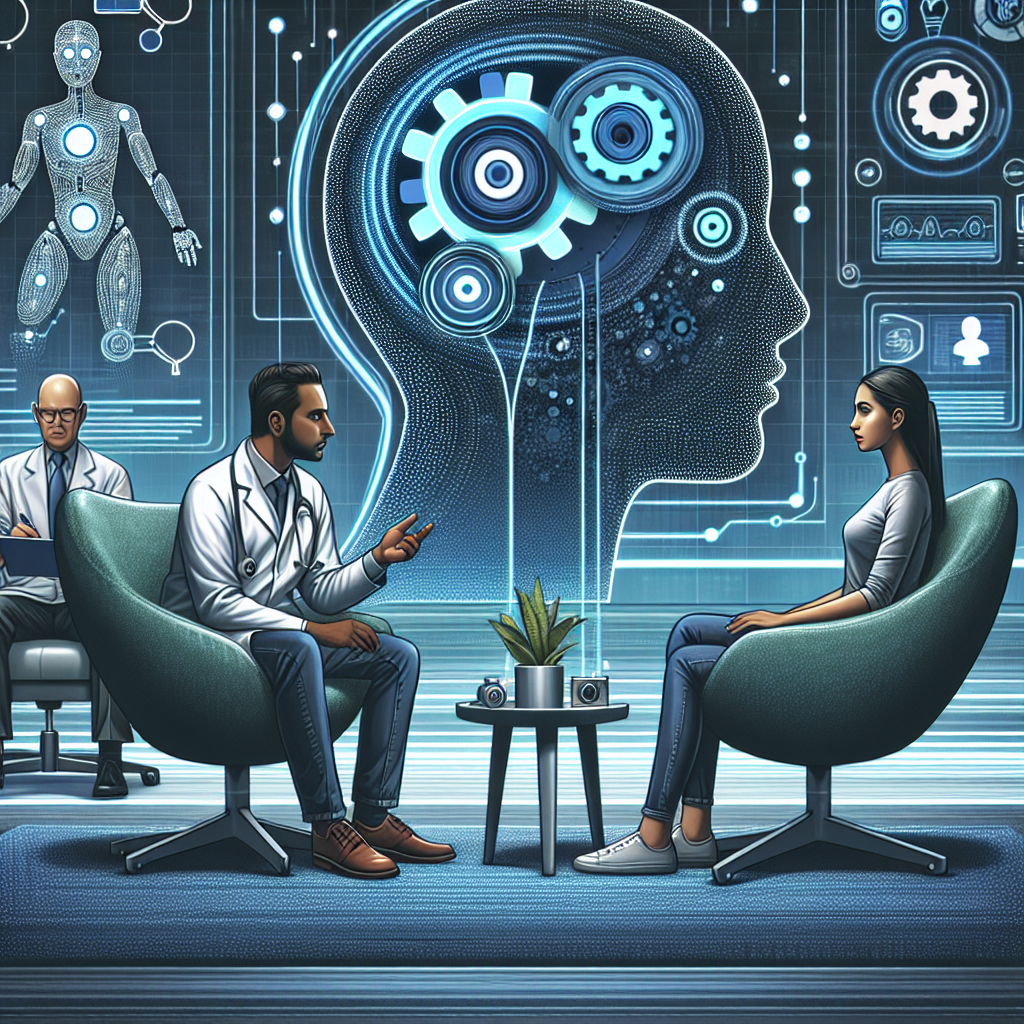What is AI in Mental Health Care?
If you’ve heard about Artificial Intelligence (AI) and mental health care, you might be curious about how the two intertwine. Let’s dive into some common questions and clear things up!
What Exactly is AI in Mental Health Care?
AI in mental health care involves using advanced algorithms and machines to understand, diagnose, and even treat mental health conditions. Think of it as adding a smart digital assistant to the healthcare team.
How Can AI Assist in Diagnosing Mental Health Issues?
AI’s role in diagnosis largely revolves around its ability to analyze vast amounts of data quickly and identify patterns that might escape the human eye. Tools like machine learning and natural language processing help in:
- Analyzing patient data from medical records, surveys, and therapy notes.
- Monitoring social media for signs of mental distress.
- Identifying patterns of speech, text, and behavior that indicate potential disorders.
Can AI Provide Therapy or Support?
Absolutely! Some exciting developments include:
- Chatbots: AI programs that can provide real-time support and cognitive behavioral therapy (CBT). These chatbots are not replacements for human therapists but can offer 24/7 assistance for those in need.
- Virtual Reality (VR): AI-powered VR programs are now being used for exposure therapy, helping patients face their fears in controlled, virtual environments.
- Personalized Treatment Plans: By analyzing data from numerous patients, AI can suggest treatment plans tailored to individual needs, potentially increasing the effectiveness of treatments.
Are There Privacy Concerns with Using AI in Mental Health Care?
Indeed, there are privacy considerations. It’s crucial to ensure that:
- Data is anonymized to protect patient identities.
- Only authorized personnel have access to sensitive information.
- Users are informed about how their data will be used.
Healthcare providers are continuously working to balance the benefits of AI with these important privacy safeguards.
Is AI Going to Replace Human Therapists?
The short answer is no. AI is designed to complement, not replace, human interaction. The empathetic understanding, moral judgment, and personal connection that human therapists provide are irreplaceable. AI is more of a tool to assist professionals in delivering even better care.
How Does AI Benefit Patients and Providers?
Both patients and providers can see significant benefits, such as:
- Faster Diagnoses: With AI, assessments can be conducted swiftly, potentially leading to quicker intervention and treatment.
- Improved Access: With AI-driven apps and chatbots, mental health support can become more accessible to those who need it, anytime and anywhere.
- Enhanced Care: By analyzing large data sets, AI can provide insights that help customize treatments, making them more effective.
What Does the Future Hold for AI in Mental Health Care?
It’s an exciting horizon! Future advancements could bring even more intuitive and sensitive AI systems, capable of detecting subtler signs of distress and improving the overall quality of mental health care. As technology and ethics continue to advance hand-in-hand, the potential for AI to revolutionize this field is immense.
So, while we’re just at the beginning of this fascinating journey, AI holds a lot of promise for enhancing mental health care – making it more efficient, accessible, and personalized for everyone’s benefit.
Got more questions? Feel free to ask – the world of AI in mental health care is vast and always evolving!
